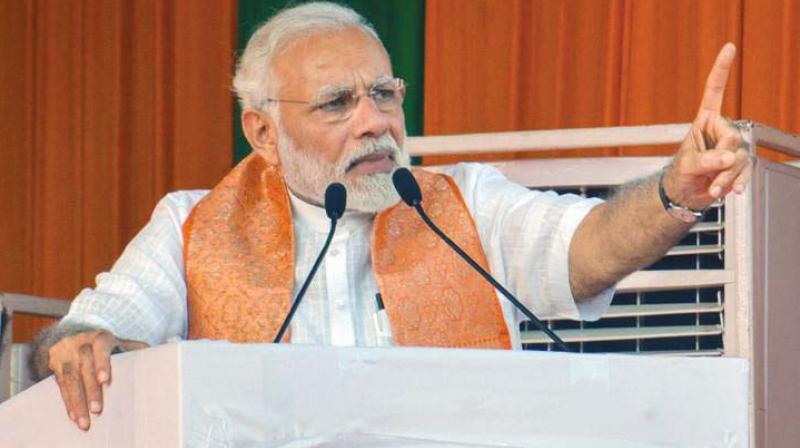Cabinet approves MoU between India, Equatorial Guinea in medicine

New Delhi: The Union Cabinet chaired by Prime Minister Narendra Modi on Wednesday gave its ex-post facto approval to the Memorandum of Understanding (MoU) between India and Equatorial Guinea for Cooperation in the field of traditional systems of medicine.
The MoU on the same was signed on April 8 during President Ram Nath Kovind's visit to Equatorial Guinea.
The MoU will enhance bilateral cooperation between the two countries. The financial resources necessary to conduct research, training courses, conferences and meetings and deputations of experts will be met from the existing allocated budget and existing plan schemes of Ministry of AYUSH (Ayurveda, Yoga and Naturopathy, Unani and Siddha).
The traditional systems of medicine in India are well organised, codified and well-documented. These systems hold tremendous potential in the global health scenario.
The Ministry of AYUSH having the mandate to promote, propagate and globalise these traditional systems of medicine has taken effective steps by entering into MoU with Malaysia, Trinidad and Tobago, Hungary, Bangladesh, Nepal, Mauritius, Mongolia, Iran and Sao Tome and Principe for the cooperation in the same.
The two countries also approved a MoU in the field of medicinal plants. The MoU will further enhance bilateral cooperation between the two countries.
The financial resources necessary to conduct research, training courses, conferences and meetings will be met from the existing allocated budget and existing plan schemes of the National Medicinal Plants Board of the Ministry of AYUSH.
India is one of the richest countries in the world in terms of biodiversity, having 15 agro-climatic zones. Out of the 17,000-18,000 species of flowering plants, more than 7,000 are estimated to have medicinal usage in folk and documented systems of medicine.
About 1,178 species of medicinal plants are estimated to be in trade of which 242 species have annual consumption levels in excess of 100 metric tonnes per year. Medicinal plants are not only a major resource base for the traditional medicine and herbal industry but also provide livelihood and health security to a large segment of Indian population.
There is a global resurgence in traditional and alternative health care systems resulting in world herbal trade which stands at USD 120 billion and is expected to reach USD 7 trillion by 2050.
Moreover, there are a large number of medicinal plants, particularly in the tropical regions, which are common to the two countries, given the similar geo-climatic factors.

